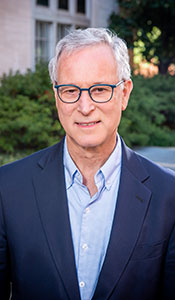I’d like to discuss here the evolving therapeutic landscape in NF1. For the past several years, the NF scientific community, including the UAB NF Research Program, has put major emphasis on conducting clinical trials for plexiform neurofibromas. Affecting upwards of 50% of people with NF1, plexiform neurofibromas are tumors that often involve multiple branches of either large or small nerves. They can be located on the surface of the body where they are easily visible or may be deep inside the body and recognized only if seen by imaging or if they cause symptoms. Because these tumors can present serious complications and surgical removal can be complex, investigators have worked to identify drugs that can reduce the size of plexiform neurofibromas.
MEK Inhibitor-Based Treatments and FDA Approval of Selumetinib (Koselugo)
Several clinical trials have investigated the effectiveness of drugs called MEK inhibitors as potential treatments for plexiform neurofibromas. MEK is an abbreviation for one of the proteins that becomes hyperactivated in a neurofibroma when the NF1 protein is non-functional. A medication called Selumetinib is one of the MEK inhibitor drugs that was found to be effective in shrinking some plexiform neurofibromas in clinical trials; published data, including a paper published in March in the New England Journal of Medicine have shown that 70% of study participants with NF1 and a plexiform neurofibroma who took this drug have experienced a 20% or greater reduction in tumor volume over the course of the study.
Based on these results, the FDA has recently approved Selumetinib for use in children with NF1 aged 2-18 who have inoperable plexiform neurofibromas. This is the first drug specifically approved for use with NF1 and represents a significant and exciting breakthrough in the advancement of effective therapies that improve the lives of people living with NF. Co-developed by AstraZeneca and Merck & Co., the drug will be marketed under the brand name Koselugo. Information about the medication for both patients and physicians can be found on the Koselugo web site, and a MEK inhibitor patient information sheet can be found on the Children’s Tumor Foundation (CTF) web site
Clinical Management and Treatment of Plexiform Neurofibromas with Selumetinib and Other MEK Inhibitors
Many individuals with plexiform neurofibromas have been followed in our clinic over the years. Surgical removal of the plexiform neurofibromas in patients who do not have symptoms is usually not recommended due the risk of complications, mainly as a result of nerve and blood vessel involvement in these tumors. Surgery is reserved for cases in which important structures are affected, such as the need to relieve pressure from the tumor on the airway or spine. Usually the tumors cannot be completely removed, and many eventually grow back after surgery.
For individuals with symptoms due to plexiform neurofibromas, the availability of MEK inhibitors, such as the newly FDA-approved Selumetinib, has opened new opportunities for treatment and underscores an important question: When is it appropriate to treat plexiform neurofibromas? The answer is that we would not treat a plexiform neurofibroma just because it is there unless one or more of the following criteria is met: the tumor is progressive; the patient is experiencing significant symptoms; or the tumor is disfiguring.
>Although MEK inhibitors may be an effective treatment option for some patients, it’s important to understand that these oral medications have potential side effects that include problems with skin, heart function, and vision, among other issues. Because of this, patients taking MEK inhibitor drugs receive regular echocardiograms and ophthalmologic examinations, as well as blood tests, to monitor for side effects. Skin rash may include an acne-like rash or a scaling rash. Medications are available to control these side effects and often are helpful. Also, fatigue and nausea can occur in some patients. Regarding Selumetinib, information about long-range tolerance of the medication, or at what point patients can safely withdraw without risk of tumor regrowth, is still being determined.
At this time, treatment for plexiform neurofibromas is in cases where there are significant indications. However, the increasing availability of MEK inhibitors such as Selumetinib and other drugs has made treatment of these tumors an evolving issue. As we learn more about these drugs, it is possible that we might move toward treating tumors at an earlier time in their evolution; whether these drugs will prevent progression when treatment is begun early is an important but so far unanswered question. The increasing availability of MEK inhibitors is offering exciting new avenues for effective treatment of plexiform neurofibromas, which is an encouraging and hopeful development for the NF scientific and patient communities.
Role of Telemedicine in the UAB NF Clinic
To slow the spread of COVID-19 and protect our patients, our NF Clinic is currently seeing patients for routine visits using telemedicine. We’ve found that telemedicine works well to address specific patient concerns, arrange diagnostic testing, and discuss the results of imaging and other diagnostic tests. We can do a limited physical exam by telemedicine, but in some cases it is necessary to perform a face-to-face examination. We hope that our clinic will open soon for regular visits, but in the meantime, telemedicine has been a helpful approach for dealing with some issues. In the future we expect that we will continue to use telemedicine for some purposes, for example to return results of testing for patients who live a long distance from our site. We had been interested in integrating telemedicine into our clinic for a while, and the pandemic has facilitated and accelerated this process. Our hope is that our patients will benefit over the long term from the convenience and accessibility that telemedicine can provide.
